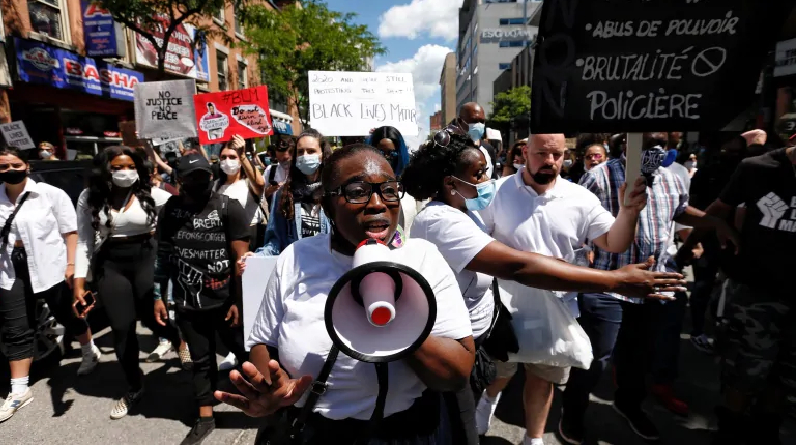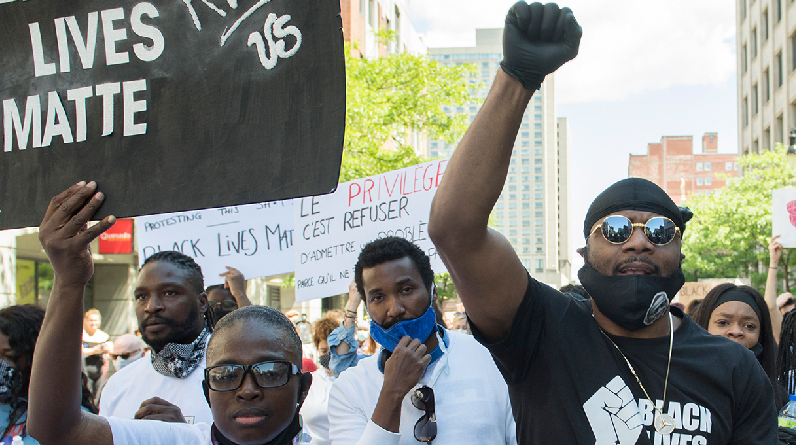The educational system in Quebec is founded on a free-market ideology. Profitable students (both financially and academically) are highly sought after by schools. Few gain, while many lose, as the system allows privileged private schools to pick and choose their students and public schools to practise segregation.
We need to look squarely at some of the problems with the Quebec school system:
- The state provides funding for private schools. Seventy-five percent of the funding for a public school equivalent goes to the private school.
- In recent years, the market share of the publicly subsidised private school sector has grown. From 5% in 1970 to 21% today, with even higher percentages in Montréal (39%) and Québec City (42%), it has increased dramatically in secondary schools across the province.
- In response to student skimming by private schools from the public system, the government has established a selective public network that is free to make student enrollment decisions (via exams, auditions, interviews and fees – sometimes hefty ones). It is estimated that at least 20% of secondary school students are attending selective public schools.
- Furthermore, regular public schools have more students with special needs and those from disadvantaged backgrounds, increasing the workload for everyone.
- School segregation would worsen as a result of this method.
- The Minister of Education is advised by the public, independent Conseil supérieur de l’éducation, which reports that Quebec has the most unequal education system in Canada.
As such, the Quebec government had good reason in 2020 to detail “Measures taken to ensure that students have equal access to education under the three-tier school system in Quebec, regardless of the economic status of their parents,” as requested by the United Nations Committee on Economic, Social, and Cultural Rights. In order to respond to the United Nations body, the Quebec government has until November 2022.

It is a formidable political challenge to rectify an educational system that has been unfair for well over fifty years. In order to meet this challenge, we at École ensemble unveiled our Plan for a Common School Network back in May, which involved a fresh look at the issue of educational equity.
Conforming to accepted global norms
The UNESCO GEM Report on private actors in education for 2021/2 provides useful guidance for those working to create a more equitable educational system. That “governments need to see all education institutions, students, and teachers as part of a single system” is the report’s most important message, in our opinion. To ensure that everyone has access to quality education, governments must not ignore instances of discrimination or exploitation.
We can learn more about how this standard should be put into practise by looking at the report’s main recommendations:
Deliver on the promise of free pre-primary education for a year and free primary and secondary education for 12 years; however, public financing does not require public provision if equity is to be maintained.
To that end, educational institutions shouldn’t pick and choose their students.
Access to high-quality education should be fully funded by governments at no cost to students.
Any mechanism that gives money to non-state actors should avoid three common flaws: selecting students in advance, charging fees, and running for-profit institutions.
These suggestions are reflected in our plan.
Plan for a Shared Network
We advocate for the establishment of a shared network to shield public and privately contracted educational institutions from competitive pressures.
Neither students nor their families will be able to choose which school they attend within the shared network, as each school will have its own catchment area. Students will go to their neighbourhood school regardless of their parents’ financial situation because student choice and the ability to charge tuition fees are both eliminated. Therefore, just like public schools, the state will foot the bill for contracted private schools (which must be non-profit).
The legal standing and administrative independence of contracted private schools will remain unchanged. There are private schools in Quebec that are independently run and receive all of their funding from the government. About a dozen of these schools serve students with special needs and have done so for decades.
See Also: The Government Of Ron DeSantis Has Banned A New, More Advanced Course On African American History.
Alternately, existing private schools that opt out of participating in the shared network will be classified as non-contracted private schools. There will be no indirect or direct public funding for these institutions. Their refusal to designate a “school catchment area” is a reflection of their desire to maintain customer choice. The government will oversee these schools in the same way it oversees existing private, non-subsidised schools in other provinces.
The government would have to spend more money to incorporate existing private schools into the common network, while saving money by not doing so. An economics professor at the University of Sherbrooke, François Delorme, was commissioned to conduct a study showing that the government could save around $100 million per year by adopting the common network. According to the results of the study, moving to the new shared network will be a six-year process.
Using the novel idea of optimised school catchment areas, the new plan will include drawing up a fair school map for each regional school authority. This will stop residential segregation in neighbourhoods from spreading to classrooms. Access to a local school is ensured, and students experience true socioeconomic balance, all thanks to this tool’s precise mapping capabilities and well-defined criteria. Using resources from the University of Zurich and the Swiss startup Ville juste, the city of Laval (population: 400,000) was able to create a proof of concept.








